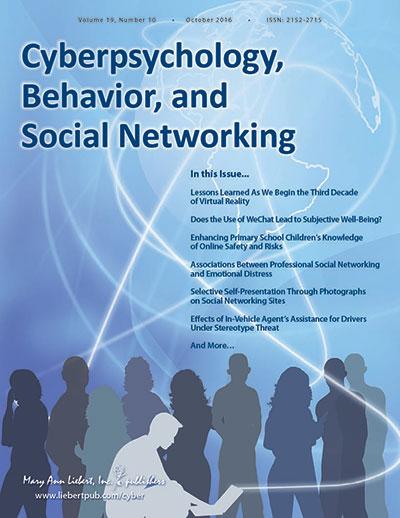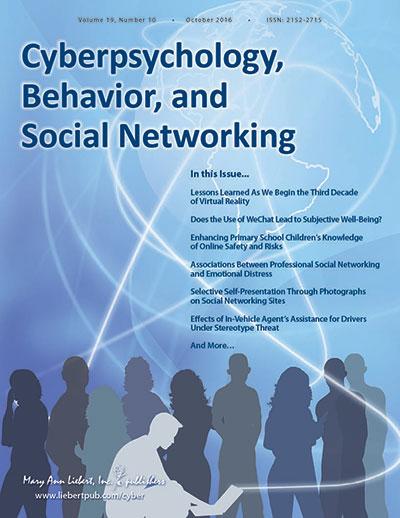
Credit: ©Mary Ann Liebert, Inc., publishers
New Rochelle, NY, November 14, 2016–Use of the instant messaging service WeChat, developed in China and used globally, may enhance peoples' feelings of overall satisfaction with life if they use it for fun and to pursue their interests. WeChat use will not necessarily bring happiness or unhappiness, though–that depends on how you use it, according to a study published in Cyberpsychology, Behavior, and Social Networking, a peer-reviewed journal from Mary Ann Liebert, Inc., publishers. The article is available free on the Cyberpsychology, Behavior, and Social Networking website until December 16, 2016.
The study entitled "Does the Use of WeChat Lead to Subjective Well-Being?: The Effect of Use Intensity and Motivations" was conducted by Zhengbao Wen, Hangzhou Normal University, Yinghua Ye, Zhejiang University, Hangzhou, China, and Xiaowei Geng, Ludong University, Yantai, China. The researchers examined the motivations for and intensity of WeChat use by university students as they related to the users' emotional experience and feelings of well-being.
"According to its parent company Tencent, as of the second quarter of 2016, WeChat reported over 806 million active monthly users, a 34% rise from the same period in 2015," says Editor-in-Chief Brenda K. Wiederhold, PhD, MBA, BCB, BCN, Interactive Media Institute, San Diego, California and Virtual Reality Medical Institute, Brussels, Belgium. "With its multifaceted functionalities, research into the psychological impacts of this lifestyle app are only just beginning to be understood."
###
About the Journal
Cyberpsychology, Behavior, and Social Networking is an authoritative peer-reviewed journal published monthly online with Open Access options and in print that explores the psychological and social issues surrounding the Internet and interactive technologies. Complete tables of contents and a sample issue may be viewed on the Cyberpsychology, Behavior, and Social Networking website.
About the Publisher
Mary Ann Liebert, Inc., publishers is a privately held, fully integrated media company known for establishing authoritative peer-reviewed journals in many promising areas of science and biomedical research, including Games for Health Journal, Telemedicine and e-Health, and Journal of Child and Adolescent Psychopharmacology. Its biotechnology trade magazine, GEN (Genetic Engineering & Biotechnology News), was the first in its field and is today the industry's most widely read publication worldwide. A complete list of the firm's 80 journals, books, and newsmagazines is available on the Mary Ann Liebert, Inc., publishers website.
Media Contact
Jennifer Gatti
[email protected]
914-740-2100
@LiebertPub
http://www.liebertpub.com
############
Story Source: Materials provided by Scienmag





